
14 Chrome Extension Building Business Success Stories [2025]
Chrome extensions are helpful tools that add functionality and features to your browser. They are small bits of code that run in the background and perform certain actions.
Chrome extensions are easy to create and low-cost and there are many ways to monetize them.
You'll need some programming skills to create the extension itself, but there are lots of tutorials out there that can help you with this part if you're not already familiar with coding languages like HTML, CSS, or JavaScript.
In this list, you'll find real-world chrome extension building business success stories and very profitable examples of starting a chrome extension building business that makes money.
1. GMass, Inc. ($5.4M/year)
During his previous business venture, Wordzen, the founder recognized the necessity of sending personalized emails to small groups. After researching available options, he was not satisfied with the solutions offered. Therefore, he developed GMass as an internal tool to aid in managing his business. Although Wordzen failed to gain much traction, GMass proved to be successful and was featured on Product Hunt, giving him the validation that he needed to make the decision to pursue this as a business.
How much money it makes: $5.4M/year
How many people on the team: 1
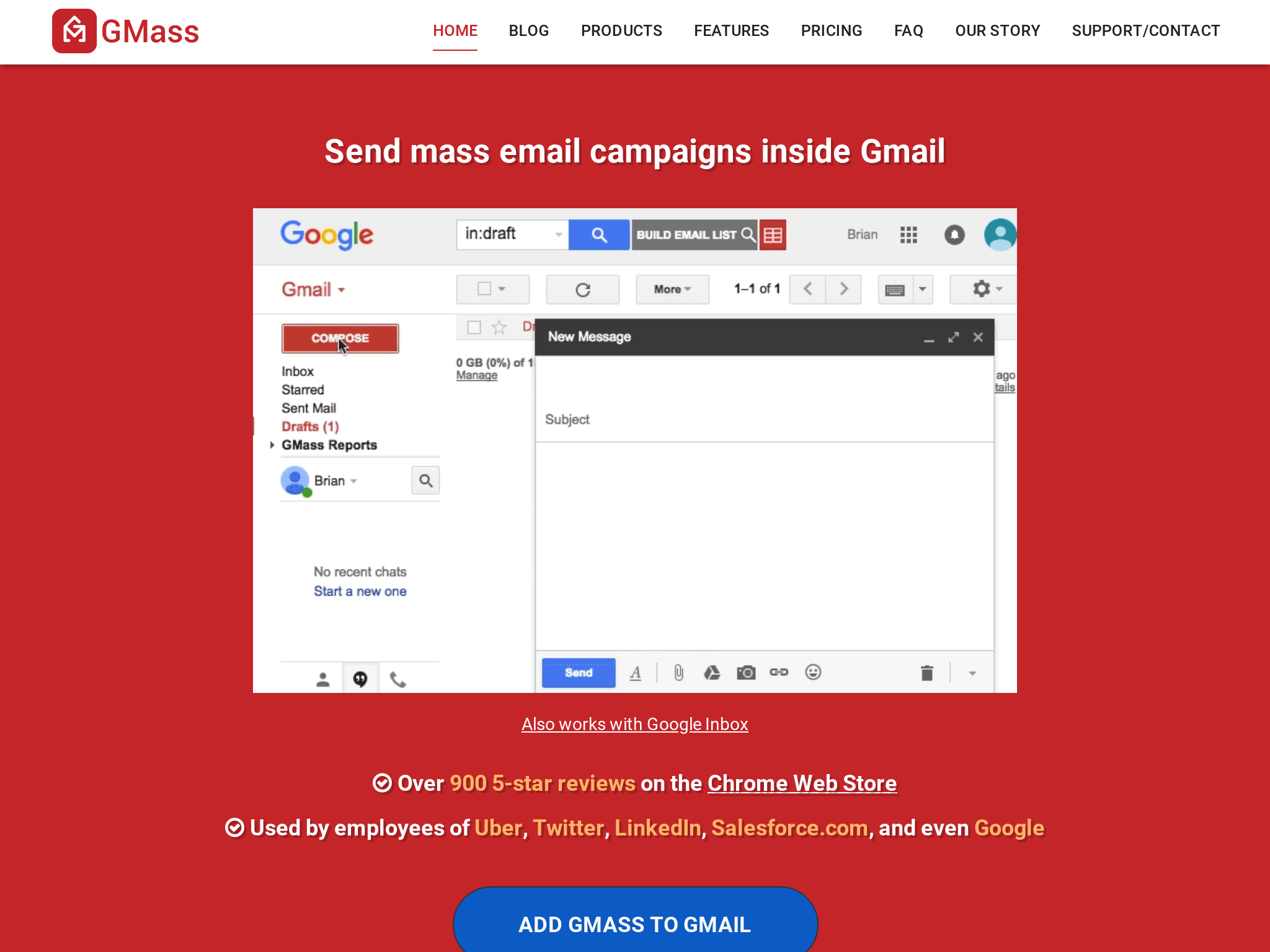

GMass, an email marketing platform that allows users to send cold emails and email marketing campaigns with Gmail, has attracted over 500,000 user signups, including major tech companies like Uber, LinkedIn, and Google, and now generates over $200K in monthly recurring revenue through a successful content marketing strategy and focused ad spend.




2. SkyVerge, Inc. ($4.2M/year)
Max Rice, the co-founder of SkyVerge, came up with the idea for the business while working as an IT Director. He reached out to Justin Stern, who was knowledgeable about WooCommerce, for help with an eCommerce project. The successful collaboration led them to start SkyVerge, which now generates $350,000 in monthly revenue and provides software tools for over 100,000 eCommerce brands.
How much money it makes: $4.2M/year
How many people on the team: 32
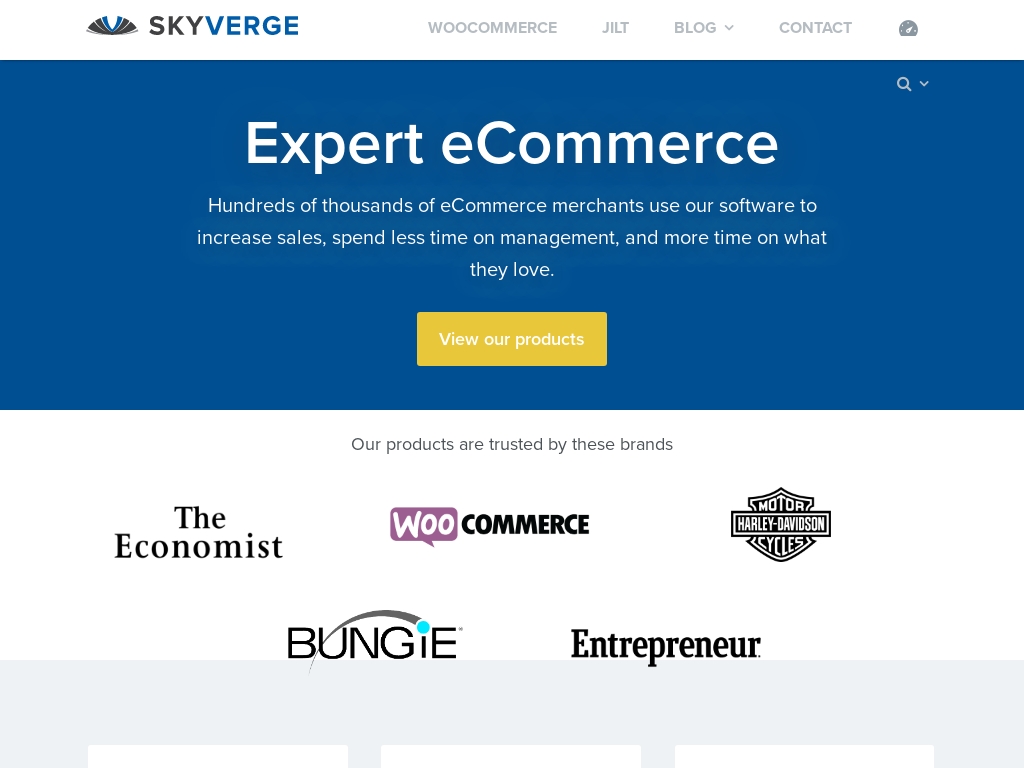

SkyVerge, a software company, has grown rapidly with revenue of $350,000 per month, over 100,000 eCommerce customers, and a globally distributed team of 30 people, all through starting with consulting projects and building focused and solutions-based products, acquiring small products from other developers, and focusing largely on content marketing and providing excellent customer support.




3. OneUp ($1.2M/year)
Davis Baer, the co-founder of OneUp, came up with the idea for the social media scheduling tool after experiencing the dissatisfaction and boredom of working in the corporate finance world. He wanted to create a tool that would automate time-consuming tasks and help businesses increase visibility on social media. Baer used unorthodox marketing techniques, such as creating a spreadsheet comparing 90 different scheduling tools, to attract and retain customers.
How much money it makes: $1.2M/year
How many people on the team: 4
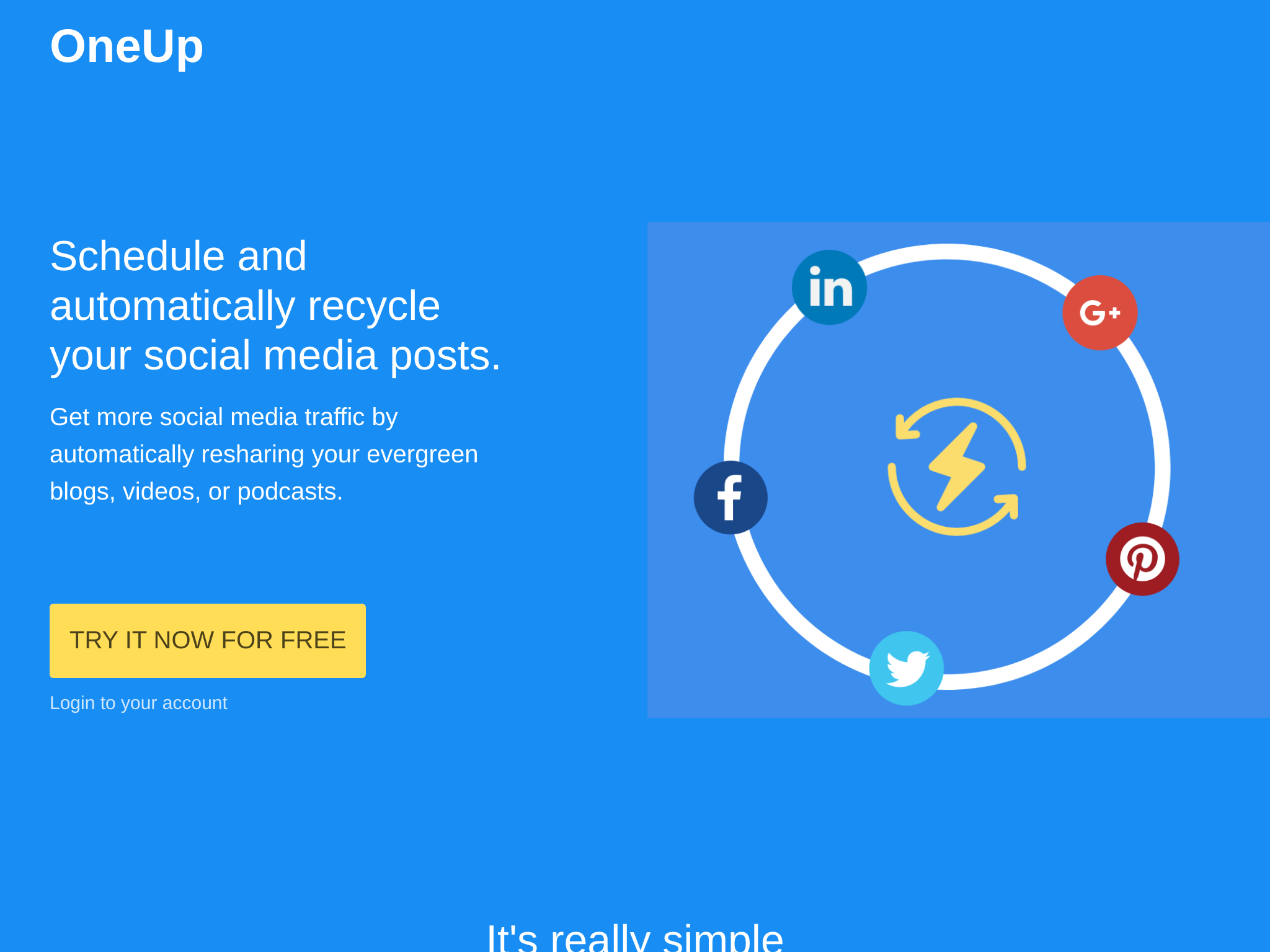

OneUp is a social media scheduling tool that helps businesses make more money by automating time-consuming tasks, allowing you to schedule Google My Business, Facebook, Instagram, Twitter, and LinkedIn posts, with the unique feature of allowing for posts to be set on repeat automatically.




4. Browserless ($600K/year)
Browserless was something Joel stumbled upon while building other things. At the time, he was building a wishlist app for his family to create birthdays and holidays list, which required gathering items across the internet in one place. As a developer, he couldn't find an easy way to do that and the existing options were costly.
How much money it makes: $600K/year
How much did it cost to start: $500
How many people on the team: 0
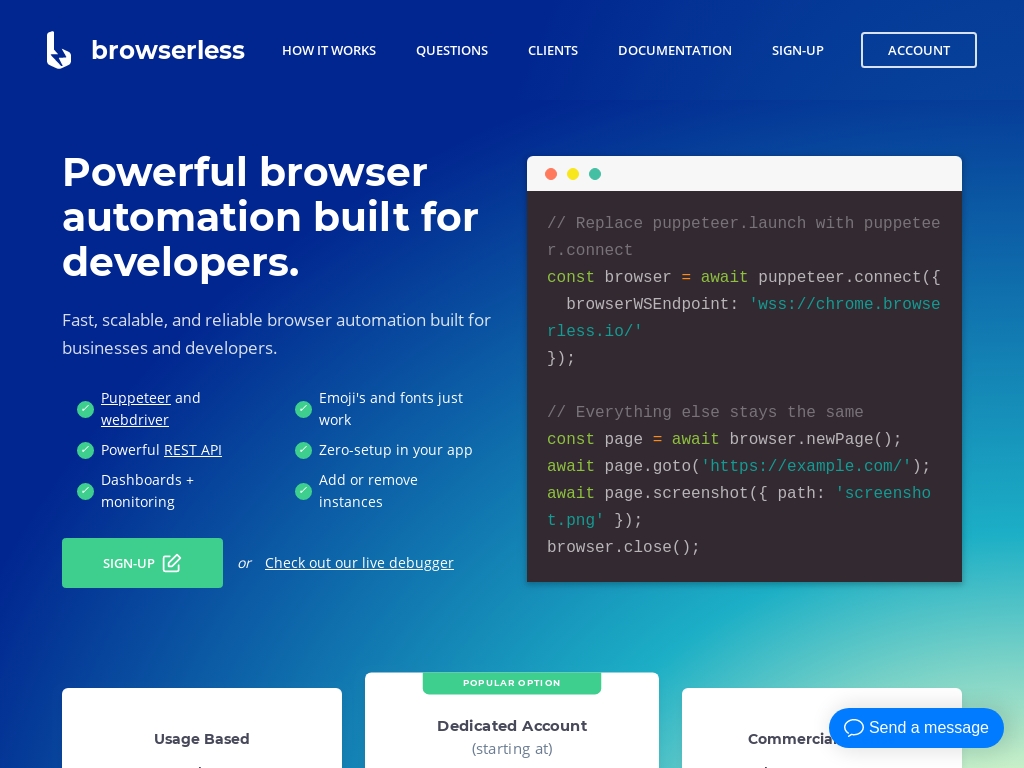

One-person SaaS business browserless allows users to automate tasks with a web browser, generating about $28,000 in sales for the month of September, and gained traction through blogging and supporting customers one-on-one.




5. COLDINBOX ($420K/year)
Arthur Backouche came up with the idea for Coldinbox while looking for a new job in growth/digital marketing. He discovered a tool to send bulk invitations on LinkedIn with personalized messages and used it to successfully engage with startups and generate leads. Seeing the potential, he decided to develop his own SaaS product, Coldinbox, which is now being used by B2B entrepreneurs, consultants, and business development managers.
How much money it makes: $420K/year
How many people on the team: 0


Two entrepreneurs developed Coldinbox, a bulk LinkedIn messaging tool that assists B2B business development managers in converting high-value prospects into leads and customers, resulting in $35,000 in monthly profits.




6. CrankWheel ($374K/year)
Jói Sigurdsson, a former Google employee, came up with the idea for CrankWheel while brainstorming with his co-founder Gilsi. They noticed that there was a lack of screen sharing tools for consumer telesales and decided to create a solution that would allow sales teams to screen share earlier in the sales process. With $370K in annual recurring revenue and less than 1% churn, CrankWheel has been successful in helping sales teams decrease sales cycles.
How much money it makes: $374K/year
How many people on the team: 3
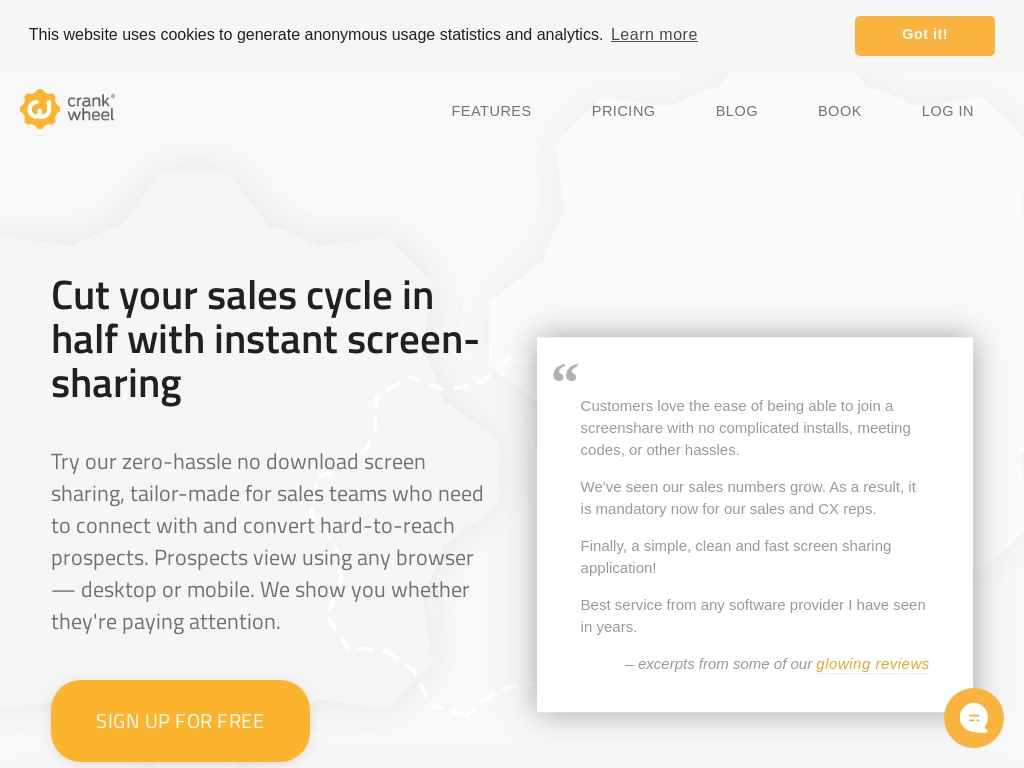

CrankWheel is a screen-sharing solution for sales teams, founded by Icelandic entrepreneur Jói Sigurdsson and his co-founder Gilsi, with $370k ARR earned and a "best B2B SaaS startup" pitching win at SaaStock, utilizing "lean startup" methodology and implementing a "land and expand" strategy to attract and retain customers.




7. Fantôm Agency ($300K/year)
Luis Camacho, founder of Fantôm Agency, discovered his passion for digital marketing after starting a successful clothing line and utilizing social media for promotion. After gaining experience at a marketing agency, he decided to establish his own agency focused on paid advertising, which now earns approximately $8,600 per month.
How much money it makes: $300K/year
How many people on the team: 1
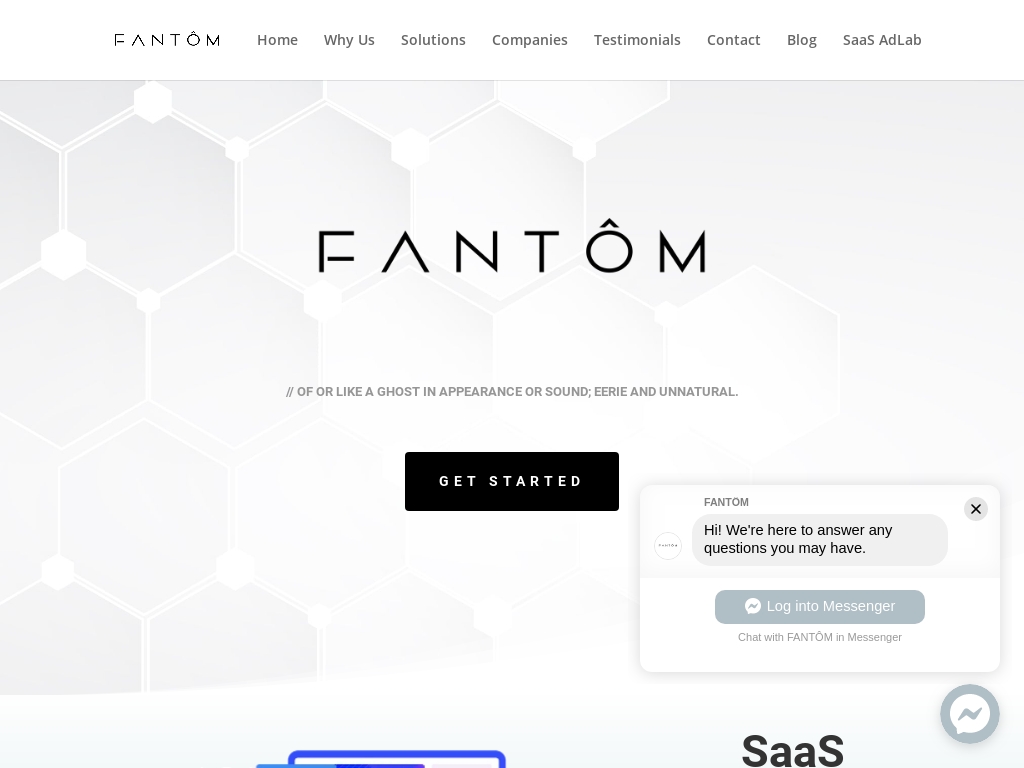

Fantôm Agency founder Luis Camacho shares how he built his digital advertising agency from scratch, focusing on helping mid-to-late stage SaaS companies scale through paid advertising channels and generating around $8,600 per month without significant overhead costs.




8. Gikken ($224K/year)
Alex, the co-founder and CEO of Gikken, came up with the idea for their flagship product, Mate Translate, while in high school. As an avid language learner, he wanted a fast and efficient way to translate words and sentences without interrupting his workflow. He developed the Instant Translate Chrome extension, which later evolved into Mate Translate, and eventually expanded it to other platforms with the help of developers. The business now generates around $18,000 a month and has a user base of 800,000 people.
How much money it makes: $224K/year
How much did it cost to start: $0
How many people on the team: 1
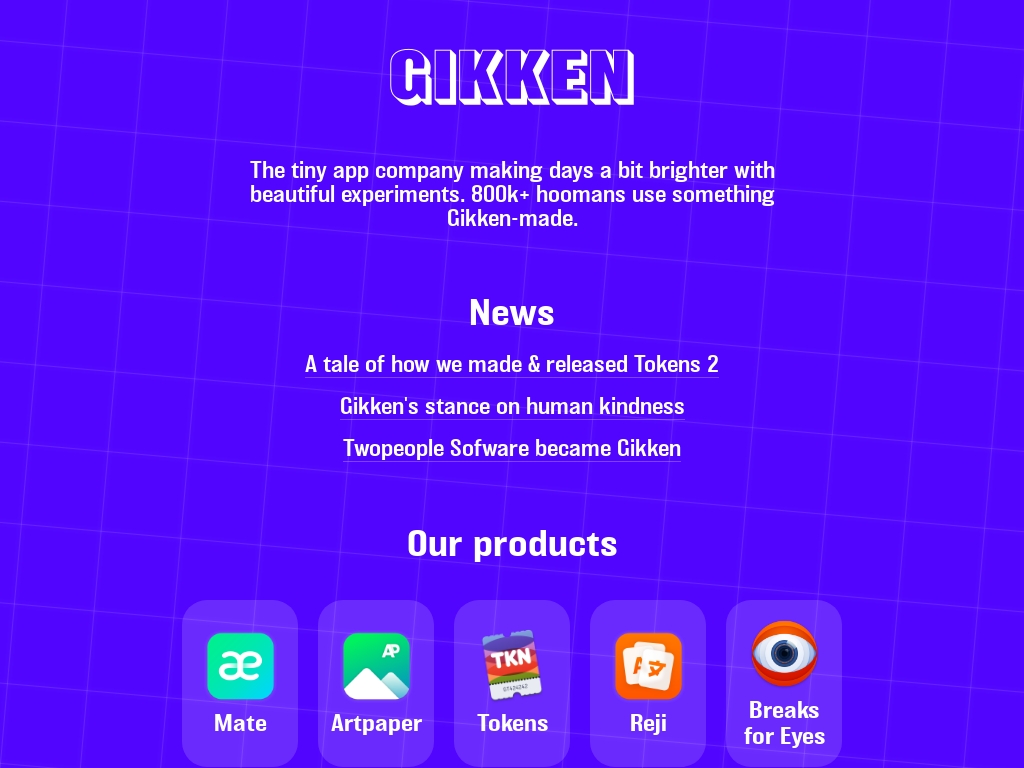

Gikken is a small, profitable European company founded by Alex that makes browser extensions and apps used by 800,000 people every month, with their flagship product, Mate Translate, generating around $18,000 a month, but monetizing their user base better is their top priority for the next year.




9. Micro SaaS Founder - Rick Blyth ($120K/year)
Rick Blyth, the founder of Merch Wizard and KDP Wizard, came up with the idea for his business after realizing the frustrations and inefficiencies faced by niche Amazon sellers on platforms like Merch By Amazon and Kindle Direct Publishing. He used his software development skills to create chrome extensions that addressed these issues, gaining positive feedback from users and ultimately leading him to quit his corporate job and focus on growing his apps full-time. After achieving significant success with his apps, Rick decided to share his knowledge and experiences in a Micro SaaS Handbook and through his YouTube channel, aiming to inspire and help other software developers start their own profitable bootstrapped apps.
How much money it makes: $120K/year
How much did it cost to start: $0
How many people on the team: 0

Micro-SaaS founder Rick Blyth developed Merch Wizard and KDP Wizard Chrome extensions to help niche Amazon sellers, earning $10k MRR and successfully selling them before creating a handbook and YouTube channel to help others build their own profitable bootstrapped apps.




10. Sync2Sheets ($108K/year)
Leandro, a former freelance software developer from Buenos Aires, pivoted from freelancing to building Sync2Sheets, a tool syncing Notion databases with Google Sheets. Launched rapidly in just two weeks, the product now boasts $9k MRR and over 400 paying customers, including Canva and Wix.
How much money it makes: $108K/year
How much did it cost to start: $0
How many people on the team: 0
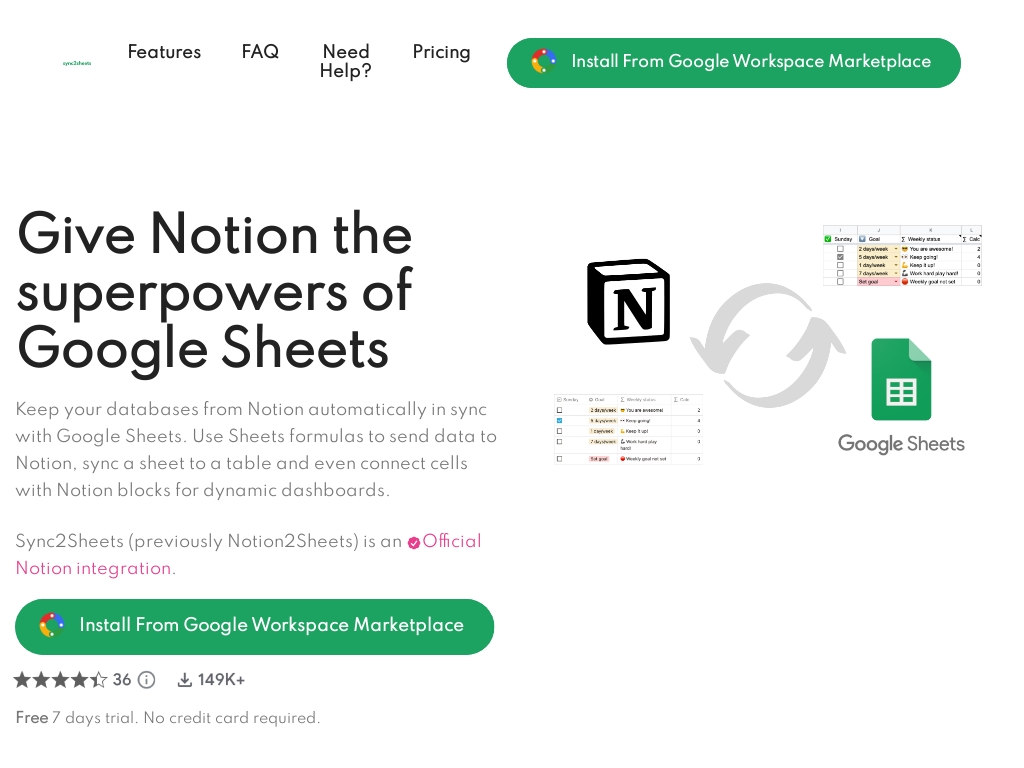

A Software Engineer turned SaaS founder shares the journey of building Sync2Sheets, a Google Workspace Add-On that syncs Notion databases with Google Sheets, generating $9k MRR with over 400 paying customers, strategic marketing tactics, and plans for expansion into other services.




11. Write.as ($34.8K/year)
Matt Baer, founder of Write.as, came up with the idea for his business in 2014 while working at a social media startup. He was inspired by the need for privacy and free expression in the face of increasing government surveillance, and created a simple writing platform that required no sign-up and focused on usability and privacy. Since then, Write.as has grown to host over 75,000 sites and 500,000 articles, with plans to expand into new areas like newsletters and company communications.
How much money it makes: $34.8K/year
How many people on the team: 1
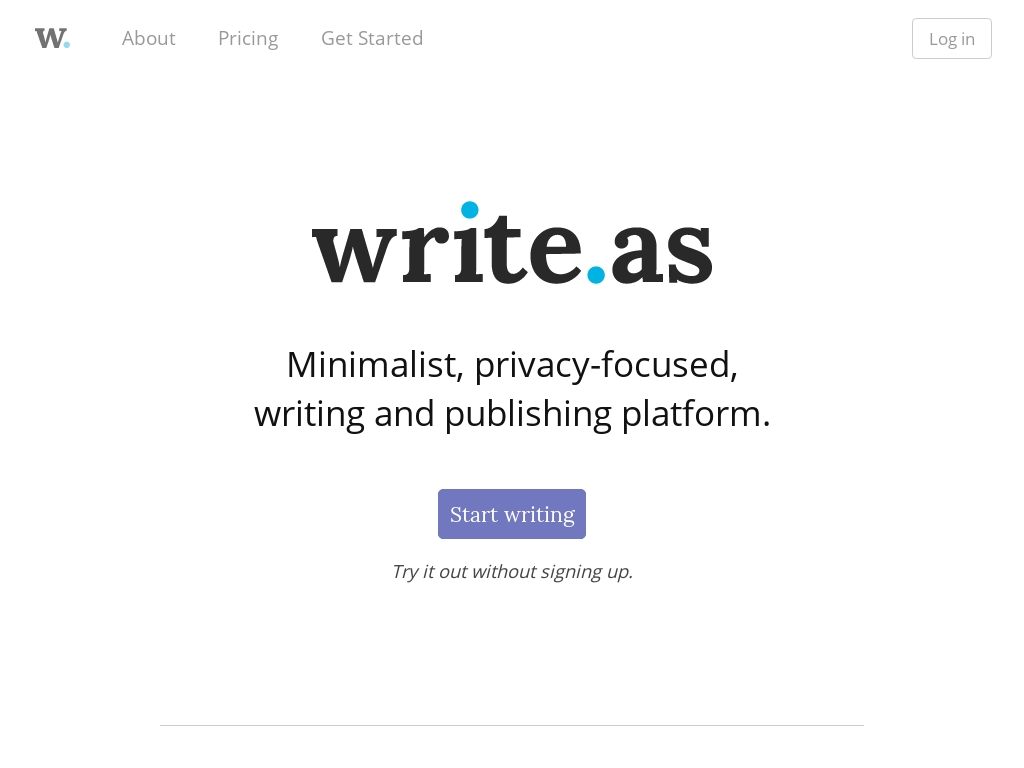

Founder of Write.as, Matt Baer, shares his journey of building a suite of integrated creative tools, including a writing/blogging platform, photo-sharing tool, and submission management system, which host over 75,000 sites and power hundreds of independent WriteFreely sites across the web, with revenue growing by 200% year-over-year since launching paid plans.




12. T.LY ($31.2K/year)
Tim Leland, creator of the URL shortener and link management tool T.LY, After reading that Google would be shutting down its URL shortener service in March 2019, the founder saw an opportunity to develop a link shortener service that could fill the gap.
He also recognized that there was a demand for a link shortener API for use in his day job, specifically with a texting application. Realizing that other companies would also benefit from this service, he decided to build his own shortener API.
How much money it makes: $31.2K/year
How much did it cost to start: $50
How many people on the team: 0

T.LY is a simple URL shortener and link management tool that has over 8 million short URLs and has tracked over 80 million clicks, with a browser extension (https://t.ly/extension) having over 350,000 active users and making over $2,600 a month.




13. SuperJack ($1.4K/year)
The founder discovered that many merchants using Squarespace forums and Facebook groups were requesting to receive orders directly to a Google Sheet without the need for manual exporting every day or week. After conducting some research, he came across a no-code tool that allows users to connect and automate repetitive tasks using different APIs. He recommended the tool and realized the high demand for it, which led him to create his own tool.
How much money it makes: $1.4K/year
How much did it cost to start: $2K
How many people on the team: 1
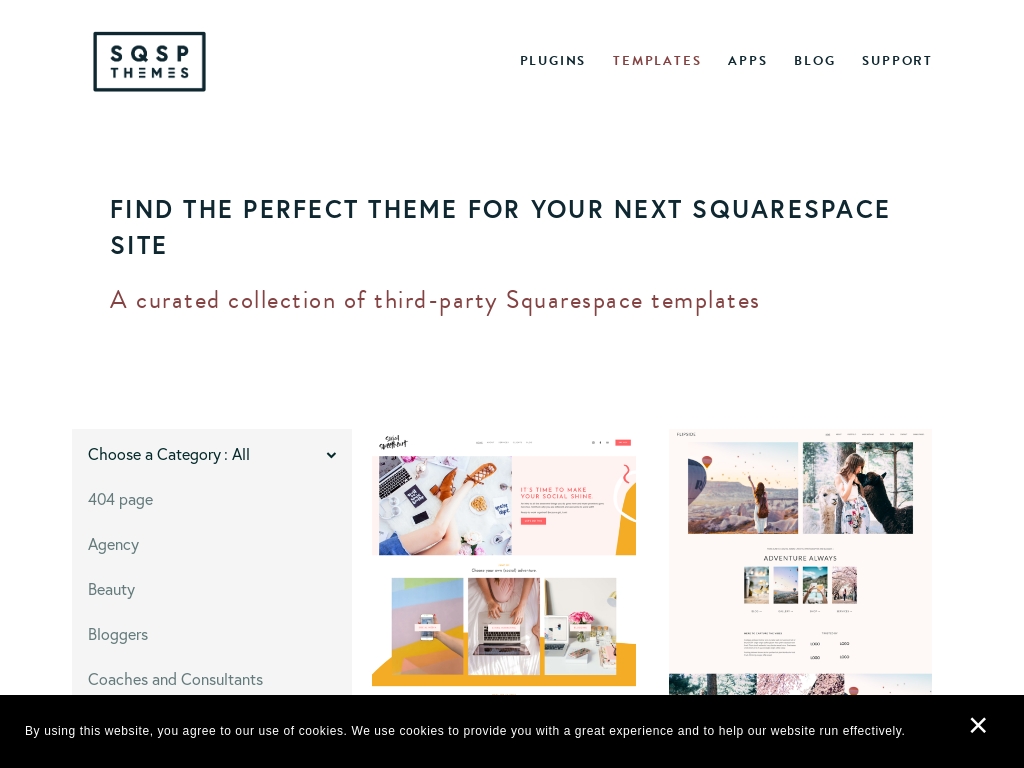

SuperJack, a Squarespace extension for eCommerce owners, was launched 30 days ago, and is currently at $117 MRR with 14 users, and the founder shares his process of building the business from identifying the problem to developing and launching the product.




14. BuyLo ($120/year)
Ju Li, co-founder of GetBuyLo.com, came up with the idea for their business while working in the insurtech industry and noticing increased polarization in society due to social media use. Believing that travel can bring people together, Ju Li and their team developed a browser extension that scans flight booking sites for lower prices, aiming to make travel more affordable, convenient, and time-saving. Despite launching during the COVID pandemic, GetBuyLo.com has garnered positive feedback from early users and gained recognition from YCombinator's Startup School newsletter and popular subreddits.
How much money it makes: $120/year
How much did it cost to start: $2K
How many people on the team: 1
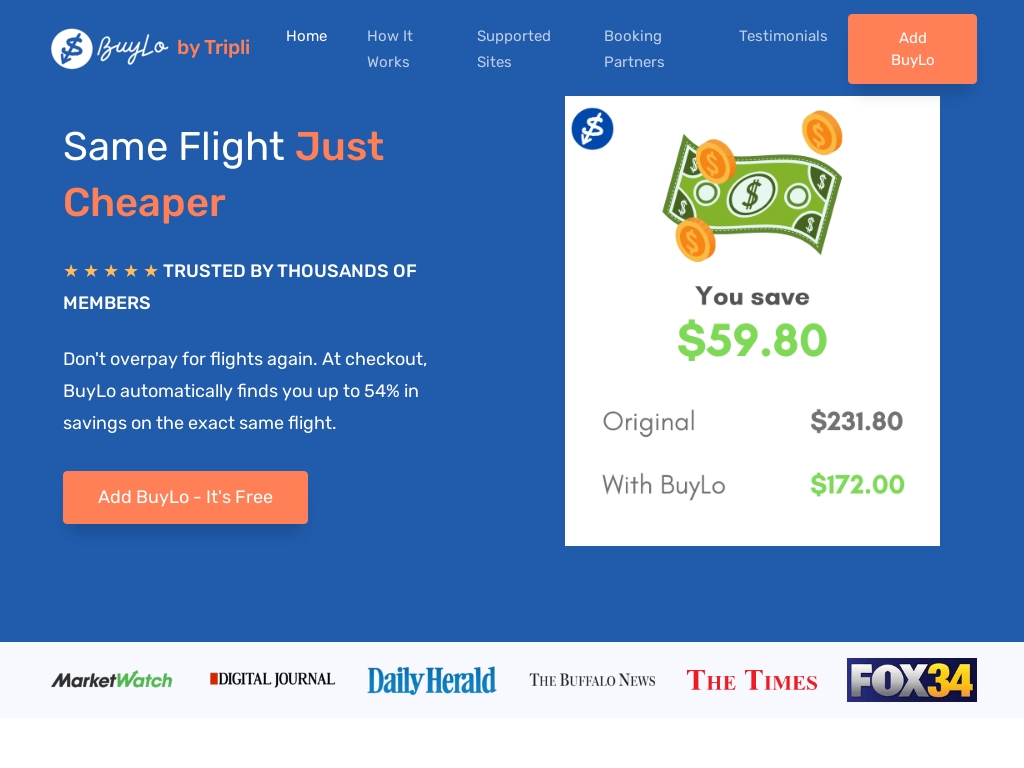

GetBuyLo.com co-founder Ju Li discusses the pivots their team had to make to build a browser extension that scrapes flight prices in real-time and finds users a lower price on the same flight, including lessons learned about moving forward with a customer-first mentality.





Download the report and join our email newsletter packed with business ideas and money-making opportunities, backed by real-life case studies.

Download the report and join our email newsletter packed with business ideas and money-making opportunities, backed by real-life case studies.

Download the report and join our email newsletter packed with business ideas and money-making opportunities, backed by real-life case studies.

Download the report and join our email newsletter packed with business ideas and money-making opportunities, backed by real-life case studies.

Download the report and join our email newsletter packed with business ideas and money-making opportunities, backed by real-life case studies.

Download the report and join our email newsletter packed with business ideas and money-making opportunities, backed by real-life case studies.

Download the report and join our email newsletter packed with business ideas and money-making opportunities, backed by real-life case studies.

Download the report and join our email newsletter packed with business ideas and money-making opportunities, backed by real-life case studies.











